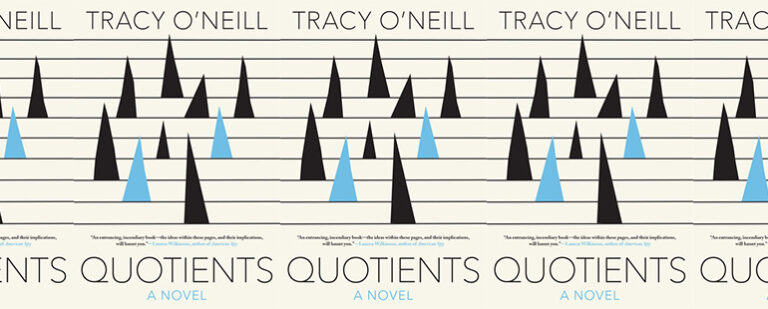The Best Short Story I Read in a Lit Mag This Week: “The Space of Things” by Jacinta Escudos
It’s often said that writers must be willing to be cruel to their characters, lest the story they tell lack drama or stakes. In “The Space of Things” (The Cossack Review), Jacinta Escudas (Translated by Samantha Memi) offers a different take on the cold realities of the writer/protagonist relationship.
Escudos begins the story by immediately putting her unnamed protagonist into a fix. The protagonist wakes up shaking from what he assumes is an earthquake, but when he tries to jump out of bed, through the mosquito netting surrounding his bed, he’s becomes stuck.
He struggles furiously, feeling the fabric like a sticky shadow tangling round his hands and arms.
In desperation he tries to tear the fabric, split it, but the net won’t break and stretches like gum in his hands. It feels stick and wet and he can’t understand why it should be wet…
It turns out the man has awoken in Kafka territory; what the protagonist believed was a mosquito net turns out to be a spider web, and what he thought was the tremors of an earthquake is in reality a “gigantic spider coming towards him at breakneck speed.” The spider captures him, and Escudos keeps the third person point of view fixed close onto the protagonist’s gruesome experience.
He feels paralyzed, useless, terrified by the spider’s red eyes so close to his head. He stops yelling and stays quiet because he thinks the spider could be angered and bite off his head. He feels his body squashed inside the saliva cocoon which the spider weaves quickly to prevent its prey from escaping…
Through this narrative closeness—Escudos achieves a few important things, one in particular that will have a bearing on the ending. Having access to the character’s thoughts and feelings as well as the concrete action makes empathizing with the protagonist easy and immediate. We feel as though we are him. But notice what happens next, through the shift in the POV as the protagonist fades:
…it (the spider) closes the cocoon surrounding its food and begins to suck its contents, squeezing it into a small empty husk, dissected and compressed. One among so many white, grey and black specks which hand from the spider’s web in the corner of the bedroom. A piece of garbage that which falls when the web is shaken as the spider retires to her corner…A piece of garbage that falls onto the sheet of paper on which a woman is writing at night, at her desk. A piece of garbage which she brushes away with an irritated hand, sweeping it onto the floor. A piece of garbage that the cleaner sweeps up the following day with the rest of the dust and dirt that he finds on the floor of the room.
Escudos creates more narrative distance, zooming out from the protagonist, giving us perspective on the events that happened and the another unnamed character in the story: the author. What results is a cutting paradox: the very empathy the writer achieved through its narrative closeness to the protagonist now works—along with the repeated garbage—to show how un-empathetic the author of the work is also. It’s a wonderful example of what we writers live with every day: bringing to life characters, feeling what they feel, making them seem as real—if not more so—than the people we meet every day, only to then put them through endless horrors, and perhaps, when it’s all done, leave them on the cutting room floor.


